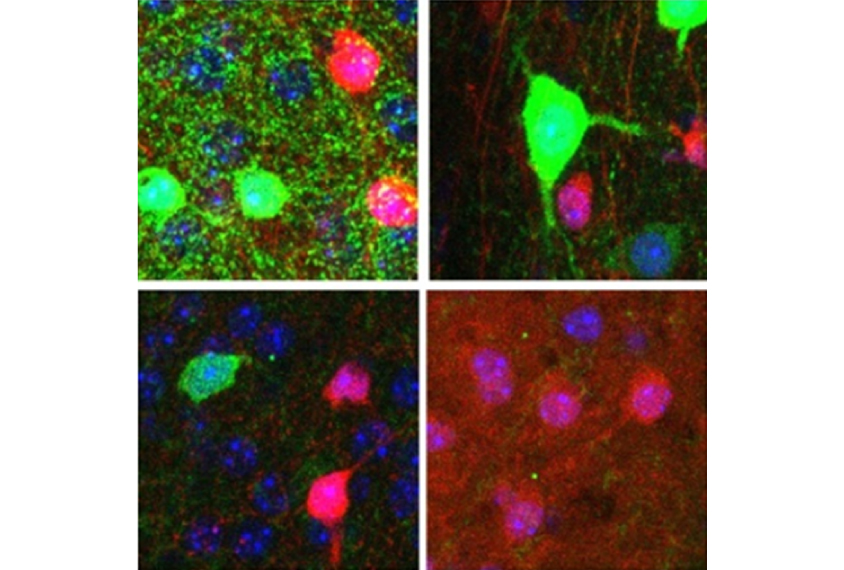Huda Zoghbi is a Howard Hughes Medical Institute investigator and professor of molecular and human genetics at Baylor College of Medicine in Houston, Texas. She is also director of the Jan and Dan Duncan Neurological Research Institute. Zoghbi explores the biology of genetic disorders such as Rett syndrome, and the genes essential for normal neurodevelopment.

Huda Zoghbi
Professor
Baylor College of Medicine
From this contributor
Remembering Steve Warren (1953-2021): A giant in the field of genetics
Steve Warren co-discovered the genetic mechanism that underpins fragile X syndrome and was a generous, inspiring mentor to many.

Remembering Steve Warren (1953-2021): A giant in the field of genetics
Questions for Huda Zoghbi: Studying Rett in the rodent brain
Removing the Rett syndrome gene, MeCP2, from distinct cells and brain regions reveals hidden features of the condition.

Questions for Huda Zoghbi: Studying Rett in the rodent brain
Explore more from The Transmitter
Frameshift: Raphe Bernier followed his heart out of academia, then made his way back again
After a clinical research career, an interlude at Apple and four months in early retirement, Raphe Bernier found joy in teaching.

Frameshift: Raphe Bernier followed his heart out of academia, then made his way back again
After a clinical research career, an interlude at Apple and four months in early retirement, Raphe Bernier found joy in teaching.
Organoid study reveals shared brain pathways across autism-linked variants
The genetic variants initially affect brain development in unique ways, but over time they converge on common molecular pathways.

Organoid study reveals shared brain pathways across autism-linked variants
The genetic variants initially affect brain development in unique ways, but over time they converge on common molecular pathways.
Single gene sways caregiving circuits, behavior in male mice
Brain levels of the agouti gene determine whether African striped mice are doting fathers—or infanticidal ones.

Single gene sways caregiving circuits, behavior in male mice
Brain levels of the agouti gene determine whether African striped mice are doting fathers—or infanticidal ones.